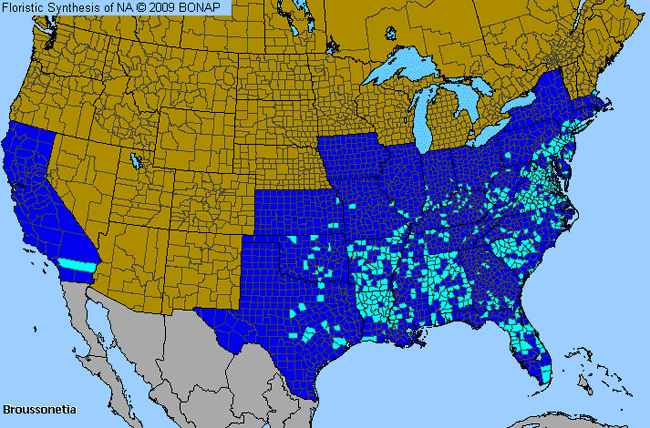Paper-Mulberry (Broussonetia)

Paper-Mulberry Genus Details

Paper Mulberry is an introduced tree species from East Asia. Generally they can grow to 50 feet tall. The leaves are alternate, 3-8 inches long, and nearly as wide. The leaves are grayish-green with rough hairs above and pale green underneath. The bark is light gray and smooth. Flowers are tiny and green. The fruit is 3/4 inch in diameter, round, orange and showy. Paper Mulberry grows from S. New England to Florida and west to Texas in the U.S. Female trees (with berries) have no pollen. This tree's fibrous bark was originally used to make paper in the Orient.
Paper-Mulberry Allergy Info

Severe allergic reactions from the pollen of this tree have been reported.
Paper-Mulberry Pollen Description

Grains are spheroidal and 2-4 porate; the pores usually circular and sometimes aspidate. The margin is slightly thickened and the sexine is tectate and usually scabrate.
Species in This Genus

Allergenicity Legend:
 Mild Allergen |
Mild Allergen |
 Moderate Allergen |
Moderate Allergen |
 Severe Allergen |
Severe Allergen |
 Allergy Test Available
Allergy Test Available
Paper-Mulberry (Broussonetia) is a genus of the MORACEAE family.
This genus includes the following allergenic species:
This genus includes the following allergenic species:












